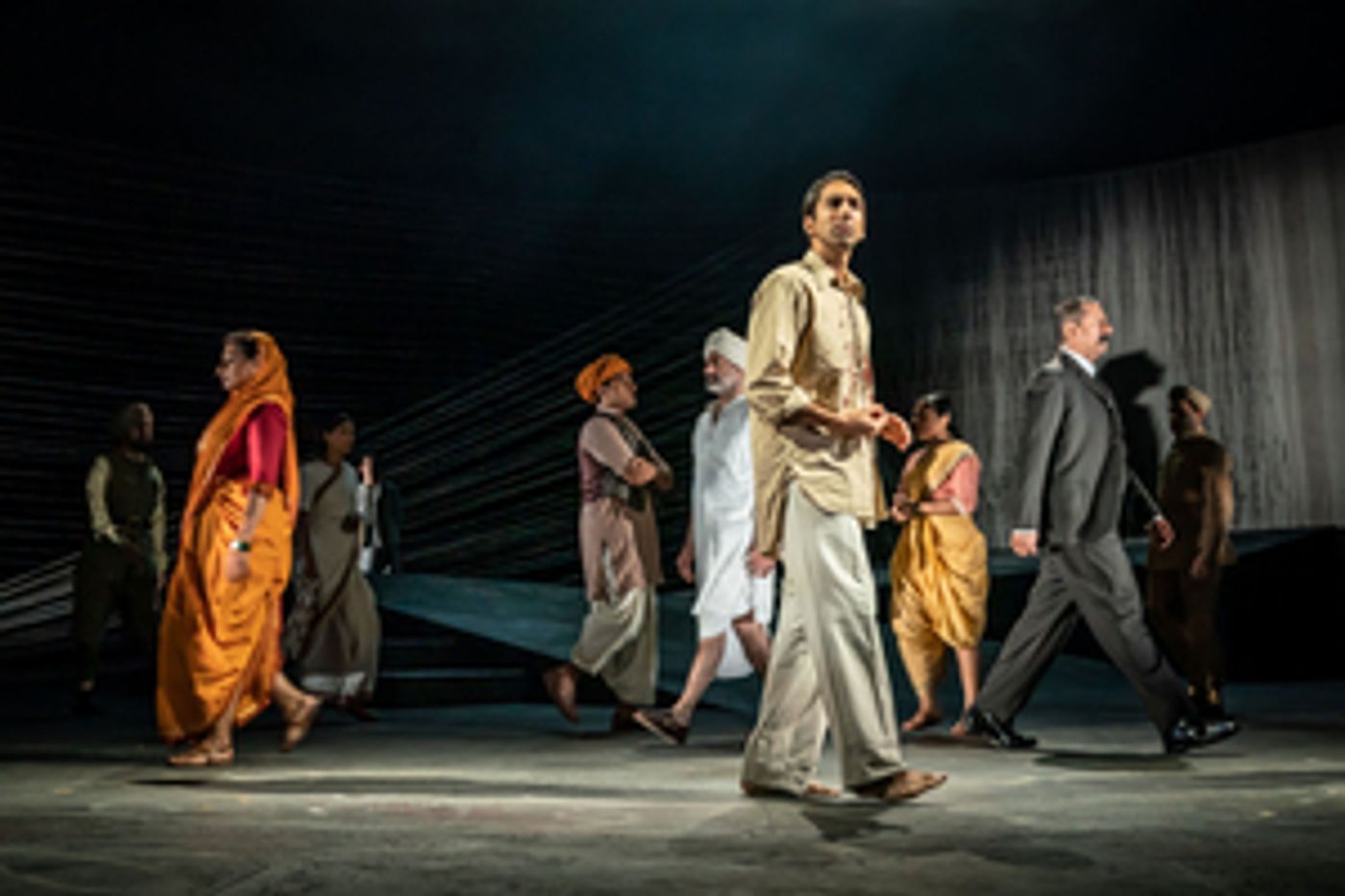Review: THE FATHER AND THE ASSASSIN, National Theatre
A majestic theatrical tapestry

![]()
A large cloth looms partially unravelled across the back of the Olivier stage. Depending on which way you look at it, the fibres that form the fabric are either unravelling or are being intertwined.
Anupama Chandrasekhar does both in her new play The Father and the Assassin that traces the parallel lives of Mahatma Gandhi and his assassin Nathuram Godse, two threads in the wider narrative of India's independence who would be woven together by Gandhi's murder. But this is no historical play. It is a lavish political thriller and a riveting psychodrama that asks not who killed Gandhi, but why.
Godse is at the helm of the play addressing the audience throughout. Shubham Saraf oozes charisma as the assassin, possessing an incredible tenderness and intimacy despite performing on such a large stage. He is initially able magnetise the audience effortlessly. Raised as a girl by superstitious parents in an India ravaged by colonial rule, his fractured identity and struggle for recognition is paralleled by India and its struggle for independence.
But Saraf artfully untangles the sympathy he garners. By the time the audience recognise his brutishness, it is too late, Godse has already morphed into a murderer. Chandrasekhar picks apart each thread unravelling the man like the giant cloth behind him. He is slowly radicalised, allured by the dream of Hindu nationalism, and driven to shoot the man he once idolised. Each strand stripped away eventually leaving nothing but a cold-blooded killed.
Questions about identity and perception are stratified across multiple layers; The Father and the Assassin does not just contend with questioning the nature of nationhood but also individual identity and self-recognition. Gandhi is both the metaphorical father of India and, initially, a father figure for Godse. Yet the play is never bogged down in swampy psychoanalysis or didacticism. It is kept afloat with a light pace even as it traverses knotty political discourse.
This is thanks to slick direction from Indhu Rubasingham who takes full advantage of the often formidable Olivier stage's cinematic potential. Sets are simple but dynamic; scenes swirl into one another keeping the tight pace punchy and electrifying. Oliver Fenwick's lighting design peppers moments of captivating chiaroscuro throughout adding a dramatic edge to the performance.
Alexander Caplen's scintillating soundscape infuses the world of 20th century India with life. The sound design also surgically dissects Godse's psyche; it ebbs to manifest his ambition, and flows to exacerbate the extent of his delusion, framing his perception of Gandhi, politics, and India's fate through his tormented blood shot eyes.
Saraf is supported with a strong cast. Paul Bazely does not play Gandhi as the subdued stoic that he is often regarded as, but rather with an emotional corporeality, a man who loses his temperament and shouts. As heroic as the man was, he still had flaws and was haunted by political failures: the partition of India, and the ensuing violence that led to thousands of deaths. But the heavier moments are cut with levity from Ankur Bahl who also deserves mention bringing welcome comic relief as Godse's childhood friend and his irksome boss.
Questions about national identity and multiculturalism are still painfully pertinent. Echoes of Godse's philosophy haunt headlines today. Take the recent violence in America in the name of so-called 'Replacement Theory'. As Godse even suggests to the audience, even Brexit is not a far cry from his world view.
Political plays can thrill as well as challenge their audiences. The Father and the Assassin entwines bold and searching questions with effectively executed drama to create a majestic theatrical tapestry.
The Father and the Assassin plays at The National Theatre until 18 June
Photo Credits: Marc Brenner
Reader Reviews

Videos

